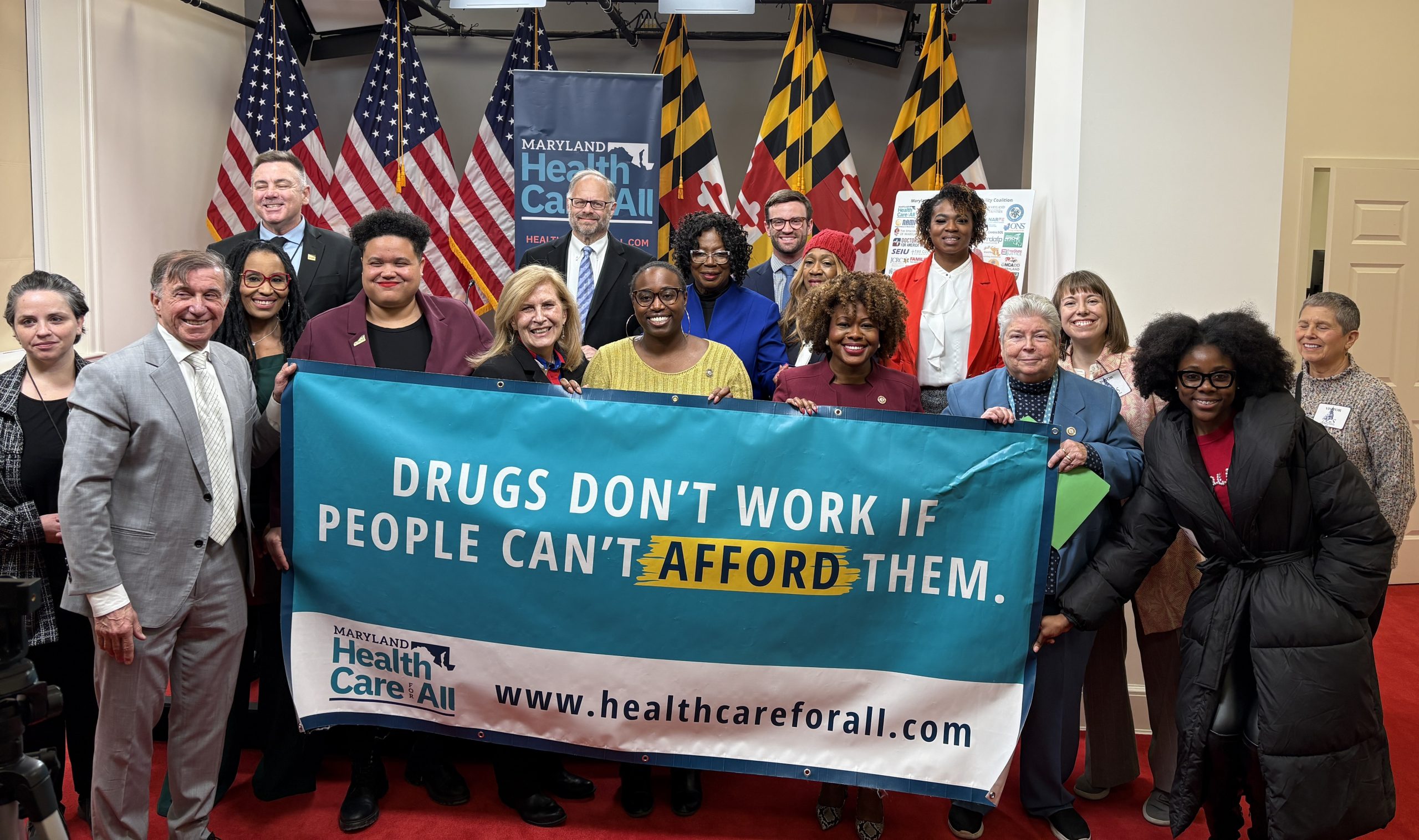The Daily Record
November 15, 2017
Tim Curtis
A year after the General Assembly passed legislation targeting price gouging by generic drug manufacturers, a health care advocacy group will bring forward legislation in 2018 designed to decrease the prices of all prescription drugs, including brand name and specialty drugs.
Under the legislation proposed by the Maryland Citizens’ Health Initiative, the state would create a Prescription Drug Cost Review Commission, similar to the Health Services Cost Review Commission that sets rates for services at Maryland’s Hospitals.
The Proposal would also allow pharmacists to provide information consumers about lower-cost alternatives and require drug companies to justify prices for new drugs as well as price increases for older drugs.
“We made a lot of progress in 2017 in Maryland with the prescription drug price gouging bill and we are going to build on that progress in 2018, particularly with the new drug cost commission,” said Vincent DeMarco, president of the health initiative.
Gov. Larry Hogan allowed the price gouging bill to become law last May but expressed concerns about the legality of the bill and its failure to address the entire drug industry.
DeMarco said he hopes the proposal addresses some of those concerns.
Two of the elements in the plan have already been tackled in other states. Last month, California Gov. Jerry Brown signed a similar drug pricing transparency bill into law.
DeMarco said seven other states have adopted similar legislation that would allow pharmacists to inform consumers about low-cost alternatives.
But generic drug makers say that push could be neutered by the previous legislation targeting generic and off-brand pharmaceuticals.
“The proponents’ earlier foray into prescription drug policy is reducing Maryland Patients’ access to FDA-approved lower cost alternatives, otherwise known as generic medicines,” said Allen Goldberg, vice president of communications for the Association for Accessible Medicines, which represents generic drug manufacturers. “So a proposal to allow pharmacists to make consumers aware of lower-cost alternatives is sadly wasted on Marylanders since there are fewer low cost alternatives available to make them aware of.”
A spokeswoman for the Pharmaceutical Research and Manufacturers of America (PhRMA), which represents biopharmaceutical companies, agreed that allowing pharmacists to share alternatives with consumers could be beneficial. But she said implementing price controls would hurt patients.
“We agree that consumers should be able to talk to their pharmacists about affordable treatment options for them,” said Caitlin Carroll, director of public affairs for PhRMA. “However, government price controls would limit – not improve – patient access and choice, jeopardizing Marylanders’ ability to access new, innovative treatments and existing medicines.”
Favorable polling
DeMarco said polling conducted last month showed broad support for the proposal in the state, and should warn legislators not to oppose the legislation.
OpinionWorks surveyed 850 Maryland registered voters and found the previous price-gouging bill and the new proposals had wide support in the state. The price-gouging law was favored by 71 percent of the surveyed voters with just 8 percent opposed. Similar margins were in favor of each of the new proposals.
“People are feeling it in their pockets,” said Steve Raabe, president of OpinionWorks. “We know from other work that voters also attribute a great deal of the cost of their heath care coverage to prescriptions drugs and understand that there’s an impact there. So, it’s an emotional issue, it’s a pocket book issue for average voters and that’s why it’s so motivating.”
Raabe said his polling found the issue could be enough to dramatically swing state legislature races between generic Democrats and generic Republicans. If Republicans supported the measure and Democrats did not, the Republican gain a large lead. If the opposite were true, the Democrat would enjoy a wide lead, Raabe said.
“There’s a message to elected officials in the polling numbers,” Raabe said. “There is an emotional electorate, they are concerned about high health care costs, and they are willing to vote on this issue. So look for this issue for 2018 as a potential wedge and a potential motivating issue in the 2018 elections.
Last modified: November 16, 2017



